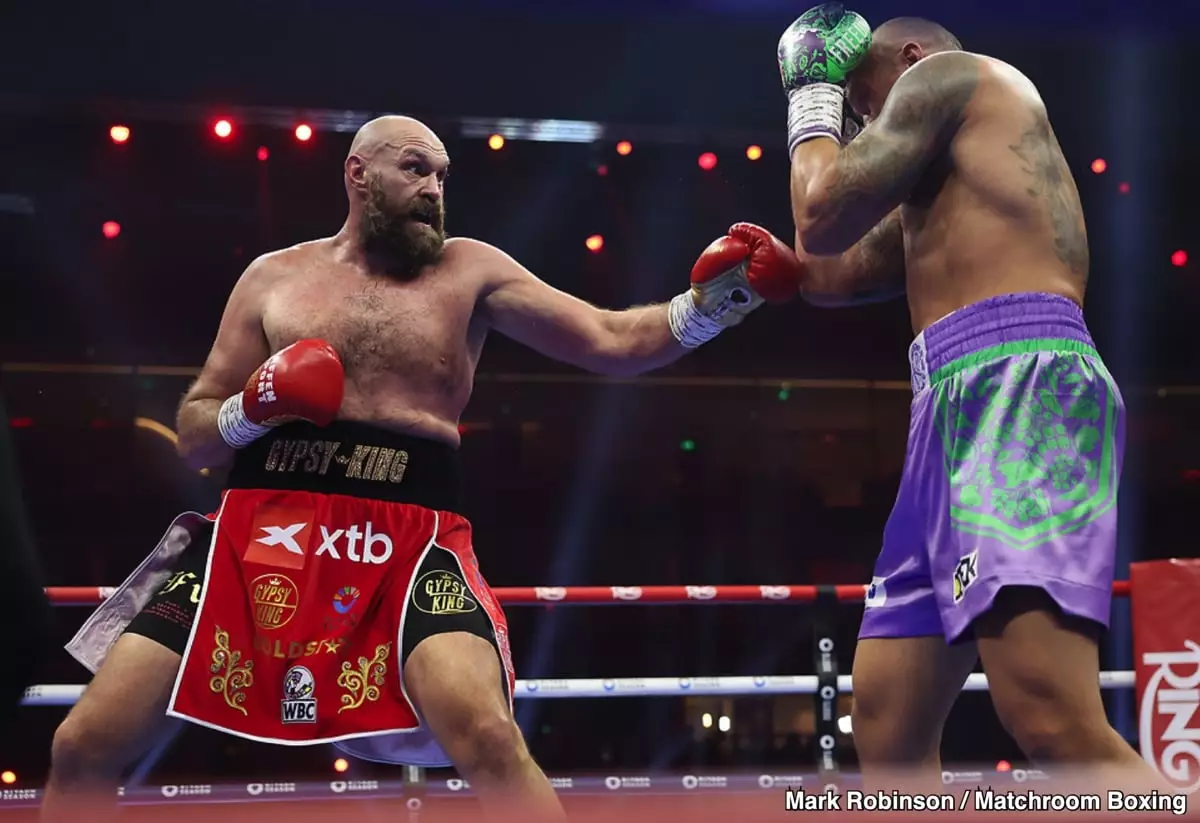The highly anticipated rematch between Tyson Fury and Oleksandr Usyk concluded with Usyk emerging victorious via a unanimous decision. Despite Frank Warren’s assertion that Fury deserved the win, a closer examination of the fight reveals various elements that suggest otherwise. This article delves into the intriguing dynamics of the match, the controversy surrounding the judges’ scoring, and the implications for both fighters’ futures.
Throughout the twelve rounds in Riyadh, Tyson Fury (34-2-1, 24 KOs) and Oleksandr Usyk (23-0, 14 KOs) exchanged blows, but it was clear that Usyk commanded the latter part of the bout. Fury’s reluctance to maintain an aggressive approach, as advised by his trainer SugarHill Steward, constructed a narrative in which Usyk strategically outclassed him. While Warren argued that Fury’s performance was much closer than it appeared, the statistical evidence from the fight, as well as the judges’ scores—116-112 across the board—paints a different picture.
Fury’s ability to dominate exchanges faltered as Usyk found his rhythm and inflicted body shots that visibly affected Fury’s stamina and confidence. The key rounds reflected Usyk’s proficiency in both offense and defense, leading to the unanimous decision that many fans and analysts regarded as justified. In the championship rounds, Fury appeared to coast, leading to questions about his mindset and preparation going into the fight.
One of the pivotal criticisms aimed at Fury post-fight was about his corner and the guidance provided by Steward. While trainers play a crucial role in preparing fighters mentally and strategically, Fury’s apparent neglect of Steward’s advice may have resulted in a significant tactical shortfall. Steward is known for instilling an aggressive fighting style, encouraging his boxers to push the pace and dominate their opponents. However, Fury’s decision to back off once faced with adversity suggests a disconnect between what was being communicated and what was actually executed in the ring.
In crucial moments, it seems that Steward’s approach may have lacked a sense of urgency. Fury needed a clear, direct admonition regarding the dire state of the fight. If Tyson felt he was ahead, there was no incentive for him to shift gears and fight more aggressively. This lack of effective communication could be seen as a failure on Steward’s part, adversely impacting Fury’s performance during the championship rounds.
The majority of boxing enthusiasts and experts have largely sided with the judging panel, believing Usyk rightfully earned the victory. Warren’s opinion that Fury won the fight has not gained significant traction among those who watched the bout without bias. This disconnection highlights a broader issue in how fighters, trainers, and promoters sometimes misinterpret fight outcomes, especially when personal stakes are involved.
Many fans have referred to Fury’s performance as a reminder that boxing is not just about size and strength; tactical execution often outweighs brute force. Usyk’s ability to adapt and adjust his strategy throughout the fight showcased the importance of being versatile in the ring, a skill that Fury was unable to match on that fateful night.
As the dust settles on this clash of titans, both fighters have pivotal crossroads before them. For Usyk, the victory re-establishes him as a dominant force in heavyweight boxing, with potential matchups against other champions or top contenders on the horizon. Conversely, Fury must reassess his training approach and mental strategy if he hopes to reclaim the heavyweight title in the near future.
Warren may believe Fury remains deserving of accolades, but the reality is that boxing thrives on performance. To rise again, Fury must take this defeat as an opportunity for growth—both in technically enhancing his skills and in emphasizing the importance of mental fortitude and awareness in the ring. As fans continue to discuss and dissect the fight, one sentiment remains clear: in the world of championship boxing, consistency and adaptability often dictate success more than just physical prowess.

